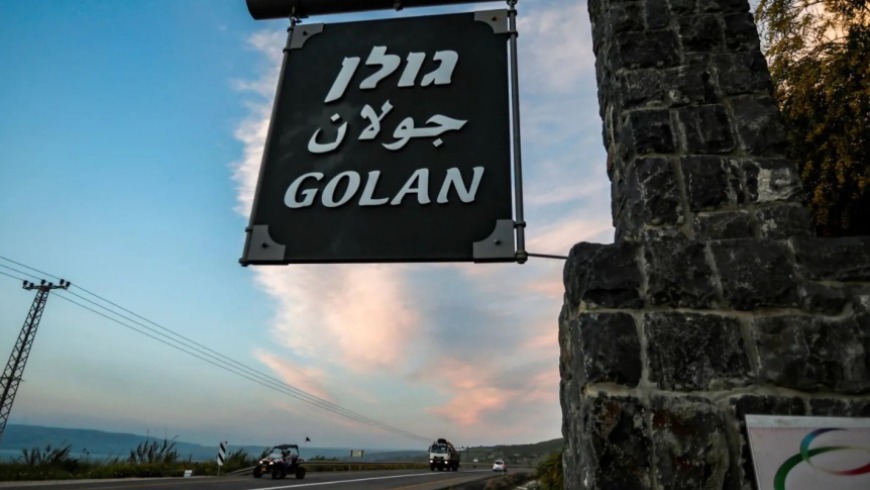Signs are mounting that Syria and Israel may reach an unprecedented peace agreement before the end of 2025—a development that could reshape regional alliances. According to informed Syrian and Israeli sources, direct negotiations are underway, with Israel’s key demand being the retention of sovereignty over the occupied Golan Heights.
Israeli Foreign Minister Gideon Sa’ar expressed cautious optimism, stating that a peace deal with Syria would be welcome “provided the Golan remains under Israeli sovereignty,” as reported by i24 News. His comments coincide with reports of increasingly frequent contacts between the two sides, including direct meetings near the border, according to Reuters.
On the Syrian side, sources suggest that the proposed agreement would include full normalization of relations and a gradual Israeli withdrawal from Syrian territories occupied after the fall of the Assad regime in December 2024—including the summit of Mount Hermon. One idea under discussion is to designate the Golan as a “peace park,” though details on governance and public acceptance remain vague.
In a notable development, Israeli National Security Council head Tzachi Hanegbi has reportedly been overseeing daily, multi-level talks with Syrian officials. He highlighted shared security interests—particularly in countering Iran—and suggested that Syria and Lebanon may follow the path of normalization initiated by the Abraham Accords.
U.S. involvement has also been confirmed. Tom Barrack, the American envoy to Syria, described the talks as “quiet but comprehensive.” President Donald Trump, during a May meeting in Riyadh with Syrian President Ahmad al-Sharaa, urged Damascus to join the regional normalization framework.
Shifting Public Positions in Damascus
Despite official denials from Syrian Information Minister Hamza al-Mustafa, who stated that contacts with Israel were limited to the 1974 Disengagement Agreement, President Sharaa acknowledged last week that indirect negotiations were underway through international mediators aimed at halting Israeli attacks.
Still, the Golan Heights remains the central obstacle. Israel insists it is part of its sovereign territory, citing Trump’s 2019 recognition of its annexation. Syria, however, continues to assert its historical right to the land. While a compromise concept of a “peace park” is being explored, public reception in Syria remains uncertain.
As negotiations proceed behind closed doors, observers speculate that a major diplomatic breakthrough may be imminent—one that could isolate Iran and redraw the map of Arab-Israeli relations. Yet without a resolution on the Golan, the viability of any agreement remains uncertain.
Skepticism and Strategic Calculations
Syrian politician and writer Mouaffaq Nyrabia told 963+ that normalization is possible but unlikely to be comprehensive or well-structured in the short term. “It may occur under pressure or as a tactical move rather than as a genuine peace,” he noted, adding that Syria’s transitional leadership needs international approval to rebuild and stabilize its authority.
Nyrabia pointed out that Israeli Prime Minister Benjamin Netanyahu may also be seeking a symbolic victory to cement the narrative of success following his two-year confrontation with Iran. A peace deal with Syria—long considered the final frontier in Arab-Israeli reconciliation—would support that narrative.
The Syrian side, he suggests, may be more inclined than before to strike a deal that reassures Israel on border security, particularly if Israel agrees to a partial withdrawal from newly occupied positions and offers compensatory security arrangements such as joint patrols or monitoring systems.
Nyrabia added that regional actors like Saudi Arabia, Turkey, Qatar, and the UAE may also play a role in shaping Damascus’s position, depending on the level of coordination among them. The success of normalization efforts will likely depend on the transitional government’s ability to present itself as a legitimate and stable governing authority.
Alternative Scenarios
Journalist and Israeli affairs analyst Thaer Mohammad al-Deek believes normalization is plausible, especially given Syria’s post-war pivot toward international engagement, supported by American diplomacy and a broader Saudi-Israeli alignment.
According to Deek, if Israel gains confidence in the Syrian government’s ability to assert control, a withdrawal from southern Syria could follow. If Damascus resists normalization, however, Israel might support the empowerment of Druze communities in the region—militarily and financially—as a counterbalance to the central government.
While momentum toward normalization between Syria and Israel appears real, it remains fragile. The fate of the Golan Heights will be the defining issue. Without a credible and widely accepted resolution to this long-standing territorial dispute, any agreement risks being temporary or superficial. The coming months may determine whether 2025 will be remembered as a turning point—or another missed opportunity—in Arab-Israeli relations.


